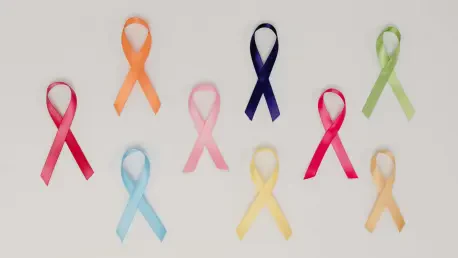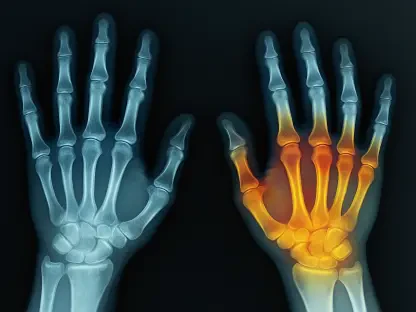In South Africa, a staggering public health crisis looms large, particularly for young women aged 15 to 24, who bear the brunt of new HIV infections despite making up only about 8% of the population, and this demographic accounts for four out of every ten new cases. This disparity is fueled by complex societal dynamics such as relationships with older men and insufficient access to preventive resources. Compounding this challenge are broader health concerns like mental health struggles, self-harm, and gender-based violence, which further underscore the urgent need for innovative, accessible solutions that can deliver support without stigma. Amidst this backdrop, technology has stepped in as a potential game-changer, offering tools that can reach vulnerable populations in ways traditional healthcare often cannot.
Enter Self-Cav, an AI chatbot developed by the health organization Audere, designed to serve as a virtual companion for South African youth. Accessible through WhatsApp, this tool provides round-the-clock guidance on critical topics ranging from HIV prevention to emotional well-being, aiming to empower users by meeting them where they are—both literally and figuratively. Named after slang that signifies understanding one’s own needs and strengths, Self-Cav represents a fresh approach to health education, breaking down barriers of judgment and accessibility with every interaction.
Revolutionizing HIV Prevention Strategies
Empowering Through Knowledge and Motivation
Self-Cav stands at the forefront of demand creation for HIV prevention, addressing a critical gap in public health efforts where simply supplying medications like oral pre-exposure prophylaxis (PrEP) or the forthcoming lenacapavir (LEN) injection falls short without proper education. The chatbot engages users with personalized information, helping them assess their individual risk factors and encouraging proactive steps toward preventive care. As new interventions like LEN prepare for rollout, Self-Cav’s ability to send reminders and provide ongoing support could prove vital in maintaining adherence, ensuring that these medical advancements translate into real-world impact for young South Africans facing high HIV risks.
A deeper look into Self-Cav’s functionality reveals its nuanced approach to user engagement, tailored to resonate with the youth it serves. By integrating local slang and offering relatable dialogue, the chatbot fosters a sense of trust, making complex health topics feel approachable. For many young women, who may hesitate to seek help due to fear of stigma, this digital ally offers a discreet pathway to understanding options like PrEP, which boasts near-perfect efficacy when used consistently. The tool not only educates but also motivates, nudging users toward local clinics for further assistance, thereby bridging the divide between awareness and action in HIV prevention.
Dismantling Stigma and Building Trust
Stigma remains a formidable barrier to HIV prevention in South Africa, particularly for young women who often avoid PrEP due to misconceptions that link its use to being HIV-positive or promiscuous. Self-Cav counters this challenge by providing a confidential space where sensitive questions can be asked without fear of judgment, fostering an environment of openness. This privacy is crucial in a context where societal attitudes can deter individuals from seeking care, and the chatbot’s non-judgmental tone helps normalize conversations about sexual health that might otherwise remain unspoken.
Evidence of Self-Cav’s effectiveness in overcoming these social hurdles is already emerging, with data indicating that approximately a quarter of its users have been successfully connected to clinics for essential services like PrEP, HIV testing, or contraceptives. This linkage to care demonstrates the chatbot’s capacity to not only inform but also facilitate tangible health outcomes, addressing deeply rooted stigma by empowering users to take control of their health discreetly. As a tool that prioritizes user comfort, Self-Cav is reshaping how young South Africans perceive and access HIV prevention, one conversation at a time.
Broadening Access and Enhancing Impact
Strengthening Ties with Health Frameworks
Self-Cav operates not as an isolated solution but as a seamlessly integrated component of South Africa’s broader health initiatives, gaining endorsement from the national health department for a full launch on World AIDS Day. Hosted on platforms like B-Wise, a dedicated sexual health resource, and piloted by respected entities such as the Wits Reproductive Health and HIV Institute, the chatbot enhances existing systems by supporting self-care practices and sending appointment reminders. This strategic alignment with established health frameworks amplifies its reach, ensuring that thousands of young individuals can benefit from its guidance within a trusted infrastructure.
Further illustrating its integration, Self-Cav collaborates with various NGOs and academic bodies to extend its presence into universities, vocational colleges, and community clinics. This partnership model allows the chatbot to address gaps in care, such as providing interim support for individuals on long-term HIV treatments or prevention regimens who might otherwise lack regular contact with healthcare providers. By embedding itself within these networks, Self-Cav not only broadens access to vital health information but also reinforces the continuity of care, proving that technology can complement traditional systems effectively.
Scaling Up for Greater Reach
The scalability of Self-Cav is a cornerstone of its potential, with current user numbers around 1,100 and ambitious plans to transition thousands more from an earlier version of the tool. Early indicators of impact are promising—about one in five users inquire about PrEP, while a significant portion of those identified as high-risk for HIV have either initiated preventive measures or expressed intent to do so. This traction highlights the chatbot’s ability to engage a critical demographic, offering tailored support that resonates with their unique needs and circumstances.
Beyond raw numbers, Self-Cav’s reach is extended through strategic partnerships with organizations that prioritize youth health, ensuring that the tool remains accessible even in resource-constrained settings. Privacy remains a key focus, with anonymous interaction options and opt-in features for clinic bookings safeguarding user trust. As the chatbot continues to expand, its design for low-cost access—primarily requiring only data usage—makes it a viable resource for low-income communities, positioning it as a scalable model for public health interventions across diverse regions of South Africa.
Paving the Way for Holistic Youth Support
Addressing a Spectrum of Health Needs
While HIV prevention is a primary focus, Self-Cav’s scope extends far beyond, tackling a wide array of interconnected health and social issues that affect South African youth. From mental health challenges to self-harm and gender-based violence, the chatbot provides a comprehensive resource hub where users can seek guidance on topics often shrouded in silence. This holistic approach recognizes that well-being cannot be compartmentalized, offering a safe space for young people to explore multiple facets of their health without fear of reprisal or misunderstanding.
The significance of this broader support cannot be overstated, especially for a demographic navigating complex emotional and social pressures alongside physical health risks. Self-Cav’s ability to address concerns like anxiety or abusive relationships alongside STI prevention reflects an understanding of the layered challenges youth face. By serving as a one-stop platform, it reduces the fragmentation of care, ensuring that users receive consistent, relevant information regardless of the issue at hand, thereby fostering a more integrated approach to health education and support.
Overcoming Challenges for Future Success
Reflecting on Self-Cav’s journey, it’s clear that while the chatbot has made significant strides in supporting South African youth, hurdles like inconsistent responses and digital access barriers have been acknowledged as areas needing attention. Connectivity issues and data costs, particularly in rural regions, pose challenges to equitable reach, prompting discussions on how to enhance infrastructure support. These obstacles are being met with a commitment to refine the tool’s responses for cultural relevance and empathy, ensuring that technology doesn’t overshadow the human touch necessary for effective care.
Looking ahead, the path forward involves addressing these limitations through targeted improvements, such as expanding language options to include Zulu and bolstering partnerships for wider accessibility. Stakeholders emphasize the importance of blending AI with human-led interventions, ensuring that Self-Cav remains a complementary rather than standalone solution. This balanced approach, coupled with continuous user feedback, sets the stage for scaling impact, offering a blueprint for how digital tools can transform public health landscapes while prioritizing inclusivity and effectiveness for future generations.









